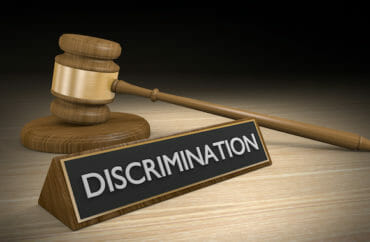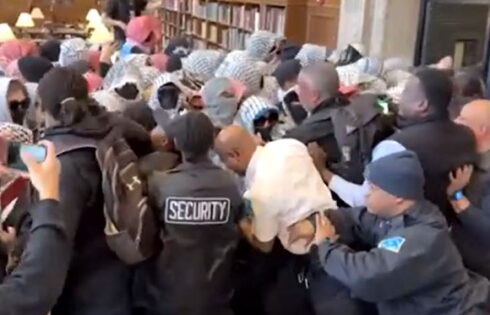
Fraternities, sororities excluded from the rule, according to Title IX
Officials at George Washington University are considering updating the university’s anti-discrimination policy to bar student organizations from selecting members on the basis of sex. The proposed draft of the new policy would include “sex, gender [and] gender identity or expression” as protected characteristics.
The proposed revision of George Washington University’s anti-discrimination and anti-harassment policy maintains that “discrimination is adverse treatment of an individual based on a protected characteristic, rather than individual merit.” The revision defines protected characteristics as “personal traits, characteristics and/or beliefs that are defined by applicable law as protected from unlawful discrimination and/or harassment” as well as “protected class categories.” Among those categories is an individual’s sex.
“Failing or refusing to allow an individual to participate in a student organization or activity based on their protected characteristics” counts as discrimination, according to the proposed policy, which was last revised seven years ago in 2011, according to the student newspaper The GW Hatchet. The current nondiscrimination policy does not include such specific language with regard to student organizations.
The new rule would seem to forbid single-sex student organizations from excluding members based upon their sex. Currently, the George Washington University has numerous apparent single-sex student groups, including the Black Women’s Forum, the Bipartisan Women’s Supper Club and the Black Men’s Initiative.
The College Fix reached out to Morgan Levy, the Title IX coordinator at the University of Rochester, who has been quoted in the school’s paper multiple times, including in The Hatchet‘s recent report on the proposed changes. (When asked why The Hatchet contacted Levy for comment despite Levy’s working at another school, Levy told The Fix: “I have a lot of [Title IX] experience here at [the University of Rochester] and at other Universities I worked for prior to my time here which is why I imagine they reach out to me.”)
Asked about the proposed revision’s potential effect on campus fraternities and sororities, Levy said that Title IX “has a clear membership practices exception to its prohibition on gender based decision for social fraternities and sororities.”
Levy provided The Fix with a memorandum explaining the exception. The rule does mandate that professional, service and honor fraternities must follow the anti-discrimination policies of Title IX. “The rationale for this distinction is based on the intangible educational advantage afforded by membership in such professional, service and honorary organizations,” the memorandum states.
According to The Hatchet, the proposed revisions were spurred by an incident at the university involving a racist Snapchat post. Student groups said that the policy’s original wording was unclear with regard to race-based discrimination.
“While we feel strongly that the proposed changes reflect the way the University has treated and has thought about these cases all along, we recognize that the actual language in the policy matters and that we can do better,” Caroline Laguerre-Brown, the vice provost for diversity, equity, and community engagement, said at a recent Faculty Senate meeting, according to the student newspaper. Laguerre-Brown did not respond to a request for comment in time for publication.
Another proposed revision includes a revised definition of “harassment.” According to the revision, “Harassment is any unwelcome conduct based on a protected characteristic where such conduct creates a hostile environment.” The revision defines a hostile environment as an atmosphere that remains “sufficiently severe, persistent, or pervasive,” which “interferes with, limits, or deprives an individual from participating in or benefiting from [university life] when viewed through both a subjective and objective standard.”
The proposed revision also states that harassment “may be blatant and intentional and involve an overt action, a threat or reprisal, or may be subtle and indirect, with a coercive aspect that is unstated,” while holding that harassment “does NOT have to include intent to harm, be directed at a specific target, or involve repeated incidents.”
Although the proposed revision fails to define how the subjective standard on hostility would be measured, it did state hostility could be measured overall by “a single or isolated incident,” and the severity of the incident would be weighed accordingly. “The more severe the conduct, the less need there is to show a repetitive series of incidents to prove a hostile environment, particularly if the conduct is physical,” the document stated.
University provost Forrest Maltzman did not respond to requests for comment on the new proposal; nor did officials from the Faculty Senate.
MORE: Universities are punishing students for simply belonging to single-sex clubs
MORE: The case for single-sex environments on campus
IMAGE: David Carillet / Shutterstock.com
Like The College Fix on Facebook / Follow us on Twitter






Please join the conversation about our stories on Facebook, Twitter, Instagram, Reddit, MeWe, Rumble, Gab, Minds and Gettr.